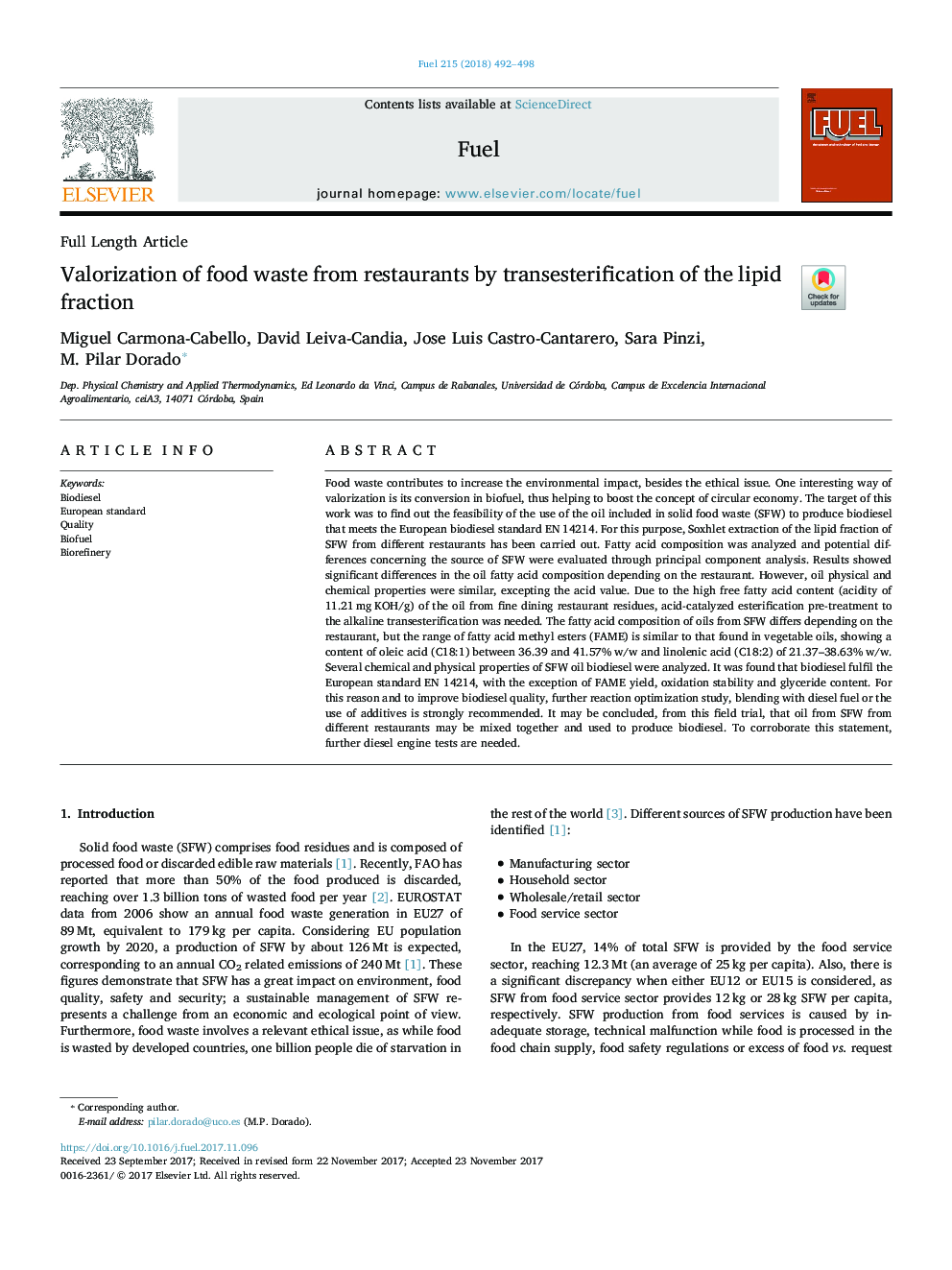| کد مقاله | کد نشریه | سال انتشار | مقاله انگلیسی | نسخه تمام متن |
|---|---|---|---|---|
| 6632373 | 1424949 | 2018 | 7 صفحه PDF | دانلود رایگان |
عنوان انگلیسی مقاله ISI
Valorization of food waste from restaurants by transesterification of the lipid fraction
ترجمه فارسی عنوان
ارزیابی از زباله های مواد غذایی از رستوران ها توسط ترانس اکسیداسیون کسر چربی
دانلود مقاله + سفارش ترجمه
دانلود مقاله ISI انگلیسی
رایگان برای ایرانیان
کلمات کلیدی
موضوعات مرتبط
مهندسی و علوم پایه
مهندسی شیمی
مهندسی شیمی (عمومی)
چکیده انگلیسی
Food waste contributes to increase the environmental impact, besides the ethical issue. One interesting way of valorization is its conversion in biofuel, thus helping to boost the concept of circular economy. The target of this work was to find out the feasibility of the use of the oil included in solid food waste (SFW) to produce biodiesel that meets the European biodiesel standard EN 14214. For this purpose, Soxhlet extraction of the lipid fraction of SFW from different restaurants has been carried out. Fatty acid composition was analyzed and potential differences concerning the source of SFW were evaluated through principal component analysis. Results showed significant differences in the oil fatty acid composition depending on the restaurant. However, oil physical and chemical properties were similar, excepting the acid value. Due to the high free fatty acid content (acidity of 11.21â¯mgâ¯KOH/g) of the oil from fine dining restaurant residues, acid-catalyzed esterification pre-treatment to the alkaline transesterification was needed. The fatty acid composition of oils from SFW differs depending on the restaurant, but the range of fatty acid methyl esters (FAME) is similar to that found in vegetable oils, showing a content of oleic acid (C18:1) between 36.39 and 41.57%â¯w/w and linolenic acid (C18:2) of 21.37-38.63%â¯w/w. Several chemical and physical properties of SFW oil biodiesel were analyzed. It was found that biodiesel fulfil the European standard EN 14214, with the exception of FAME yield, oxidation stability and glyceride content. For this reason and to improve biodiesel quality, further reaction optimization study, blending with diesel fuel or the use of additives is strongly recommended. It may be concluded, from this field trial, that oil from SFW from different restaurants may be mixed together and used to produce biodiesel. To corroborate this statement, further diesel engine tests are needed.
ناشر
Database: Elsevier - ScienceDirect (ساینس دایرکت)
Journal: Fuel - Volume 215, 1 March 2018, Pages 492-498
Journal: Fuel - Volume 215, 1 March 2018, Pages 492-498
نویسندگان
Miguel Carmona-Cabello, David Leiva-Candia, Jose Luis Castro-Cantarero, Sara Pinzi, M. Pilar Dorado,
